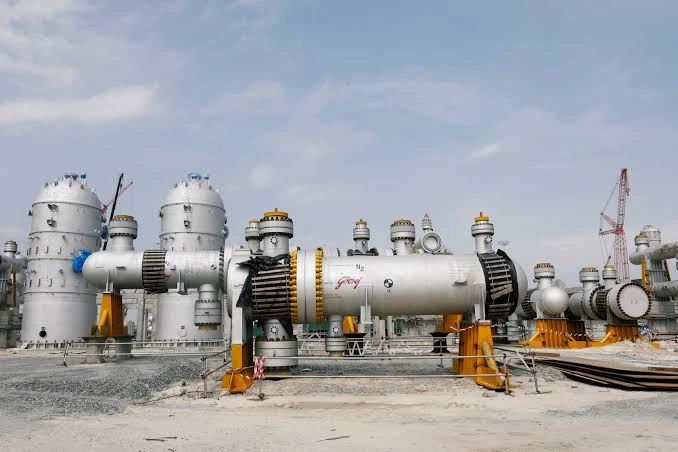Tinubu signs insurance industry reform Bill into law, targets $1trillion economy
Africa Should Chart Independent Path in Global Energy Transition -NNPCL Boss

Continent should deepen alliances across regional lines
As the global energy transition continues to get traction, the Group Chief Executive Officer of Nigerian National Petroleum Company (NNPC) Limited, Mr. Bayo Ojulari has called on Nigeria and other African countries to chart their course in the universal energy transition plan by embracing technology, building cross-border alliances, and investing in human capital development.

The NNPC GCEO stated this while delivering his keynote address virtually at the opening of the 2025 SPE Nigeria Annual International Conference and Exhibition (NAICE), themed “Building A Sustainable Energy Future: Leveraging Technology, Supply Chain, Human Resources and Policy.
According to him, “We must recognize the future of energy is neither linear nor pre-determined; it is shaped by the decisions we make, and how we intentionally engage, strategically invest, and boldly embrace innovations.”
He stated that the oil and gas industry must be repositioned as the cornerstone of a sustainable, inclusive, and resilient energy future. He said, “Energy must be repositioned as an inclusive energy future.”
The NNPC boss warned against adopting externally imposed transition models, stating, “Energy transition must not be imposed; it must be contextualised, just, and negotiated.
“Many of our people are yet to attain basic energy access. “Our people need energy, and our approach must be balanced and anchored on energy justice,” he said.

Ojulari explained that Africa faces complex, interrelated challenges, including climate change, capital flight, technology gaps, and supply disruptions, which, according to him, cannot be effectively tackled in isolation.
He stressed the need for collective solutions and dialogue, adding that “We need to deepen alliances across regional lines. “We must foster robust, transparent dialogue among all stakeholders. Through partnership, we can achieve.”
He urged inclusive engagement involving all stakeholders, including government, financiers, civil society, and the youth.
He said, “We must foster robust and constructive dialogue among all stakeholders – government, industry players, financiers, multilateral institutions, technology leaders, civil society, and our youths.”
Highlighting areas critical to net-zero goals, he listed carbon capture, utilization, and storage (CCUS), hydrogen, AI-driven exploration, smart grids, and modular/mobile gas solutions.
Ojulari said, “Such innovation must be embraced not as buzz words but as strategic enablers that will allow us to achieve our net zero target without compromising energy access for industrial and residential purposes.”
He added that Nigeria and Africa will require massive investments to meet growing energy needs: “Large resources and infrastructure will be required to quench the energy thirst of Nigeria and Africa.”
Ojulari further emphasised, “We have ourselves at a critical inflection point where the imperative of energy security, environmental sustainability, and economic development must be reconciled.
” Through bold leadership, our collective innovation and our shared responsibilities…” He advocated for strengthening investment frameworks saying that “We need to urgently de-risk our environment by improving governance, streamlining regulatory frameworks, and honouring contracts, ensuring a transparent fiscal system.
” We must also leverage instruments such as blended finance and climate-resilient funds and attract strategic investors with long-term commitments.”
He said, “This is a call for joint stewardship where government and industry players co-create investment environments that are credible, attractive, and future-focused.
“If we succeed, the result will be a pipeline of well-funded, technologically enabled, socially inclusive energy projects that not just generate profit but also resilient and uplift communities.”
Ojulari also called for the use of petroleum resources to develop renewables, promote clean cooking technologies, and decarbonise heavy industries:
“Calling clean cooking technologies to displace biomass and deploying CCUS to decarbonise heavy industry, using the resources of petroleum to develop funds for renewable and also develop human capacity and infrastructure to create a pathway where hydrocarbon and technology co-exist, each playing a role in getting a modern energy system for Africa.”

He stressed the importance of youth engagement and STEM education in driving the continent’s energy future.
“Transition is about people and not about fuel. The future cannot be achieved without the hearts and minds of the young ones. We need the innovators of tomorrow to understand the energy narrative and shape it, and lead it. “They must lead the future energy narratives to shape it and lead it.
” Let us invest in STEM and empower our youth to see the energy sector as not just based on extraction but a space for invention and inclusion of global relevance where resources are mined.”
Ojulari, therefore, emphasised that the action taken today will determine the future of the planet. He charged, “Let us put in partnership, mobilise capital and embrace technology, and let us lead the energy transition on our terms and in our context with our people at the centre.
” This is the moment to act and not to hesitate. “We need to act with conviction and not in isolation but in cooperation, and together we can build an industry that is profitable but purposeful, not only efficient but enduring, not only relevant but revolutionary,” Ojulari said.
Ojulari, therefore, emphasised that the goal of the national oil company is not just for today, but to build a sustainable energy future for generations to come






